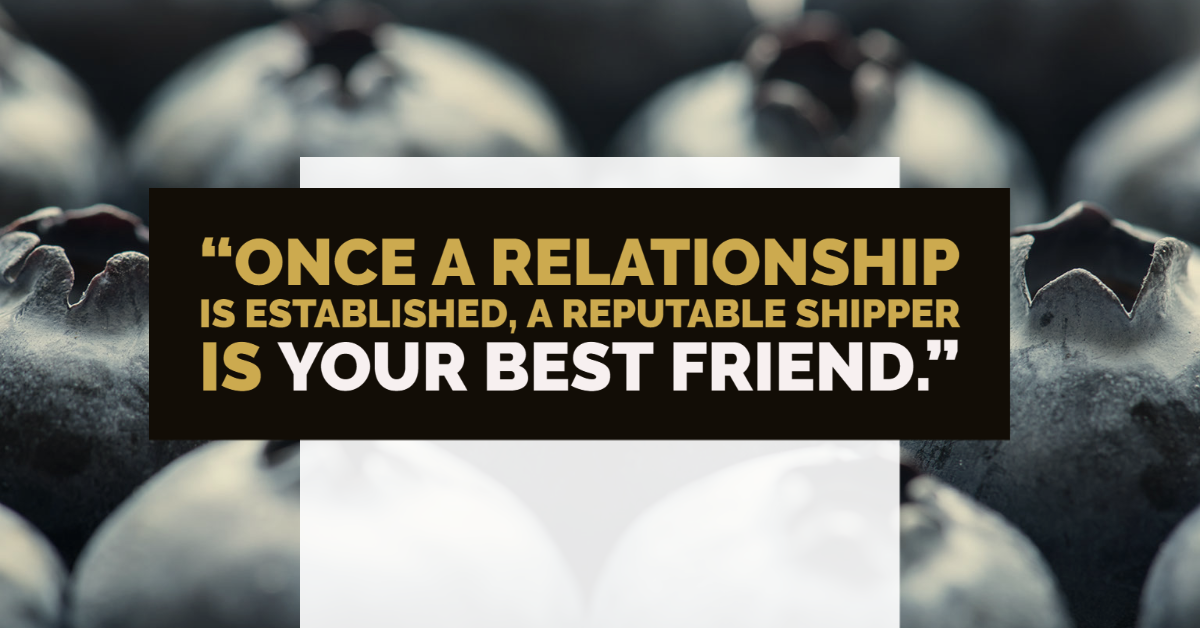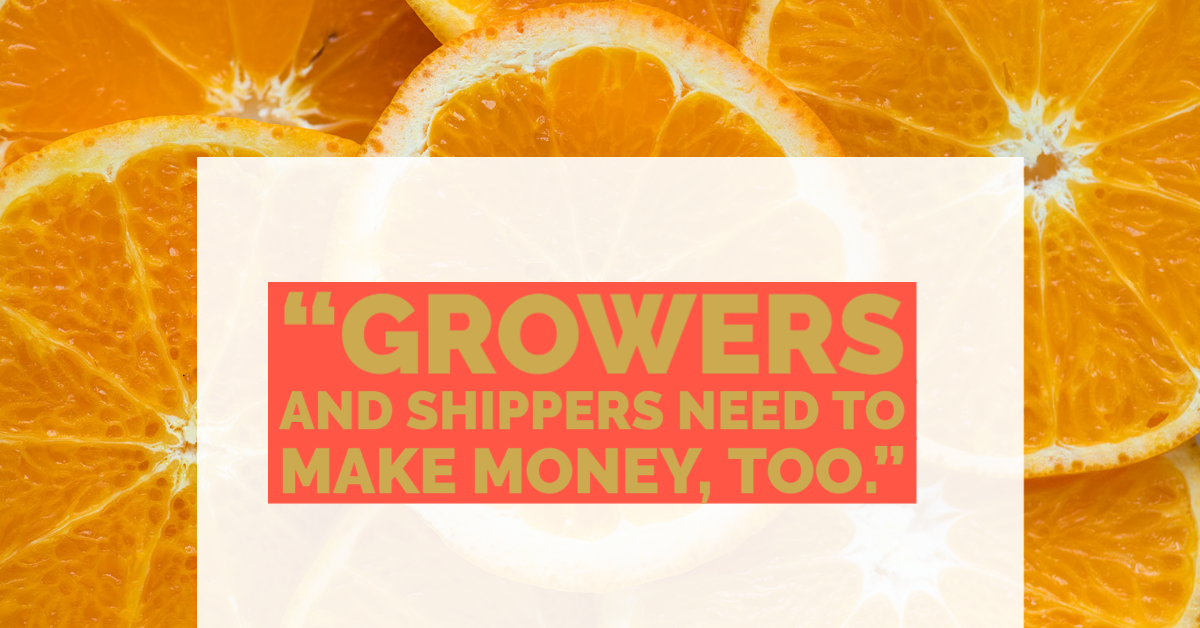This article is part of a series by industry veteran Armand Lobato. Read on for insights regarding:
- Creative ways to make deals work for both sides
- Going to bat for your supplier with management
- Going to bat for management with your supplier
- The value of being someone's customer
As a produce buyer, you will always be challenged to get the best possible price.
You will likely be encouraged to be detached and seek the very best deals so your chain can deliver competitive prices and your stores can earn as much gross profit as possible. However, we are talking about fresh fruits and vegetables – commodities whose value is determined not only by production, packaging and other costs but often by supply and demand.
“Whatever the market will bear” is the phrase frequently thrown around.
Buying produce is indeed unique. We make deals on the phone that can place sometimes tens of thousands of dollars of produce in motion with not much more than a verbal commitment. That doesn't happen anywhere else in the business world.
Given this environment, here are a few thoughts on negotiating for produce.
Remember that price isn't the only factor
Dealing with companies you can trust is worth more than a few pennies saved here and there.
Over time you become comfortable working with certain shippers as they consistently perform to the level expected. They quote a certain product, at a certain quality level, at a certain price, in set quantities, and they ship in a timely fashion. In short, they do what they say they will do.

Once a relationship is established, a reputable shipper is your best friend. They not only keep you in stock, but they keep you in stock when supplies get tight. (And between weather and other factors, things do get tight).
If you make a point to be a regular customer and give a supplier most of your business, they are far more likely to cover you when times get tough.
Also, in a good relationship the shipper will provide you with timely market information: When supplies are increasing, waning, inching up in price, or when quality concerns arise.
Having a supplier who delivers those kinds of update is valuable for your short-term and long-term planning, and it sets you up to have frank negotiation discussions later on.
Know your commodity
You can't expect to negotiate on a produce item when there are supply problems, particularly when a shortage is due to quality issues, lower volumes at the start or end of the deal, a supply gap, or weather issues.
Produce items have seasonal peaks, and experience (and your supplier) will help guide you to know what commodities are in promotable supply. This knowledge is the best leverage for negotiating.
Also, arrive early and keep an eye on f.o.b. lists and study relevant market reports. It helps keep you informed and keeps everyone honest.
Have a good backup supplier (or two)
Every shipper, no matter how accomplished, has their down times. Ensure you have a go-to backup supplier for when something happens beyond everyone's control: Storms, washed-out roads, quality issues, rejections – are all examples of why you should have a good backup supplier.
Nurture these relationships by giving your backup suppliers an occasional order so you can build some status and familiarity. That will put you in a better position to expect some help should the need arise.
Negotiating ad lids should also be directed and shared with these shippers, along with at least some less-than-load orders, so your purchasing eggs aren't all in one basket.
Be prepared but be flexible
Produce ads tend to be set well in advance, and as the ad period draws near, the related items come more into focus in terms of availability and cost.
Keep your shippers abreast of your needs for both regular and ad business so that, when it comes time, you basically are asking for their best “lid” price to base your ad placement and volume projections.
How to ask for something special
Let's say you're looking to drive sales of a one-pound clamshell of strawberries. Suppose the regular f.o.b. is $14, and your director wants to have a hot price point that requires you secure a $9 f.o.b. for six loads. The shipper may counter and hold their ground at $10 and ask for a minimum of eight loads.
You may be able to sway the shipper by compromising and asking for the $9 f.o.b. for seven loads but agreeing to pay $1 over normal f.o.b. for their berries in the week or two following the ad. You may also propose to make sure the stores hang all the shipper's point-of-sale and send display photos for verification.
The shipper may then agree to this or a similar outcome that benefits both parties.
Help your supplier
Negotiation is absolutely a two-way street. You can nurture a good relationship by asking, “Where are the opportunities? Where is the sweet spot volume that you're trying to move this season?
Suppose you normally spec an 88-count gala apple, and you learn that the shipper is heavy on 113s, and the galas grade just fine and are excellent quality. Can you take advantage of this?
You might suggest to the produce director and your marketing team that the time is right to pull the 88s from the marketing plan and instead promote the ‘teens in three-pound bags for school lunches and have an aggressive price point and gross profit.
This plants the marketing angle for the chain, gives you a plentiful and profitable item to push, and helps the shipper move their crop. As time goes on, the shipper will remember this and be more willing to, in turn, help you negotiate a desired f.o.b., knowing you are open to being a true partner in the game.

How to go to bat for your supplier to management
Suppose you exceeded your projection and commitment of six loads of grapes and, being a little tight, you were fortunate to get a desired ad lid. Now you are running short and are compelled to book two more loads to finish up the ad, but the price is two dollars over the ad lid.
When pressed, as a responsible buyer you're compelled to explain the circumstances and – despite protests from management – you're bound to pony up the extra two bucks to the shipper to help get you through the ad. After all, the shipper held up to their end of the bargain and in fact was able to keep the pipeline full while other shippers had nothing extra to offer.
Try to see it both ways. Growers and shippers need to make money, too, and continue in business for the future.

How to support management when talking to your supplier
This is the opposite scenario. Supposing you're compelled to buy from a not-so-familiar shipper, one that promised a hot f.o.b. but, as the ad drew near, was unable to provide you with either price or product. Then you had to buy elsewhere at the last minute to cover your needs and ended up paying more than planned. The shipper needs to try to make things right.
When dealing with a company like the one in this example, you must go to bat for your chain and negotiate a make-good. Perhaps they honor the price in a subsequent ad or even pay by the difference between what they promised and what you ended up paying.
If the shipper is in it for the long run, as most are, they're likely to be open to working something out to mitigate lost ground.
In conclusion
As an accomplished buyer, you are well-versed in your product lines and you know what the going rates are on your items. Much of the negotiation leverage you hold has more to do with how much volume you move, how regular a customer you are to the shipper, how attractive your terms are and how timely your organization is in paying its bills, and how flexible you are when things get a little sticky.
The pragmatic, fair-minded buyer will ultimately earn the best reputation, to the point that shippers want to do business with you.
That is, by far, the best negotiating stance you can hope for.
Armand Lobato works for the Idaho Potato Commission. His 40 years of experience in the produce business span a range of foodservice and retail positions.









